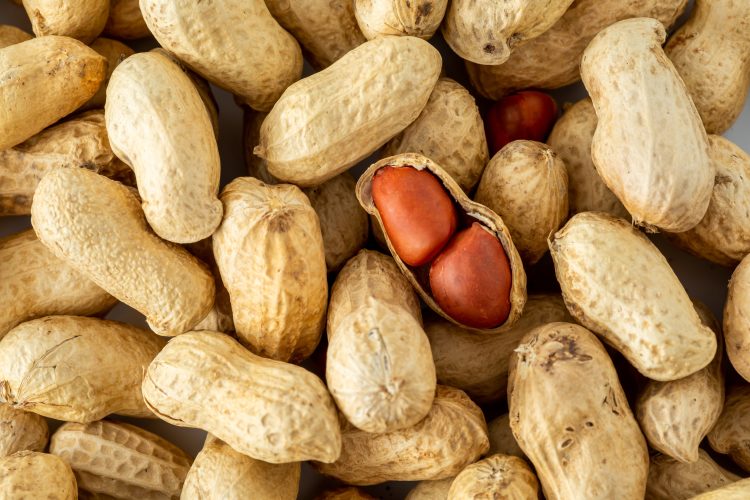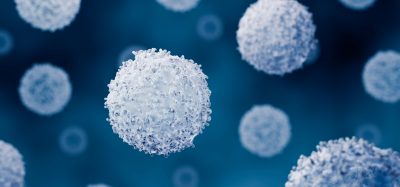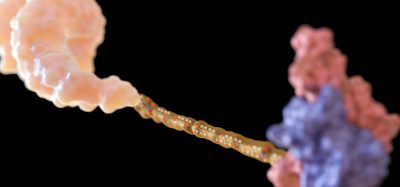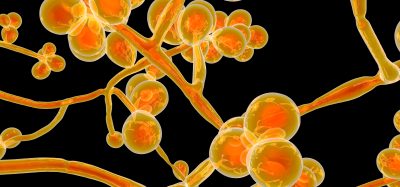Why scientists are targeting the gut to treat peanut allergy
Posted: 23 September 2025 | Drug Target Review | No comments yet
A new oral immunotherapy could change how peanut allergy is treated, targeting the gut to retrain the immune system and reduce the risk of life-threatening reactions. INP20’s nanoparticle technology promises a safer, more precise approach that could replace lifelong avoidance with lasting tolerance.


Peanut allergy remains one of the most serious and persistent food allergies worldwide. For millions, daily life still centres on strict avoidance and the constant need to be ready for an emergency. InnoUp Farma, a Spanish biotech specialising in oral drug delivery, believes it has found a safer and more precise way forward – INP20, a nanoparticle-based oral immunotherapy.
The development of INP20 has been led by Dr Maite Agüeros, CEO and co-founder of InnoUp Farma. With a background in pharmacy, a PhD in nanomedicine and more than 15 years of translational research experience, she has guided the programme from early concept through to a strong preclinical profile. We spoke with her about the science, the challenges and the vision driving INP20 towards the clinic.
INP20: first-in-class oral immunotherapy for peanut allergy
INP20 is designed to induce immune tolerance to peanut allergens without the escalation and safety risks seen in traditional immunotherapies.
“INP20 leverages InnoUp’s proprietary oral drug delivery platform to activate specific immune receptors to reprogram the body’s response to allergens,” says Agüeros.
By delivering very small amounts of allergen directly to immune-rich areas of the gut, INP20 reduces the likelihood of severe reactions such as anaphylaxis. For Agüeros, this represents more than an incremental improvement – it is a shift towards “care from burden to empowerment”.
A dual mechanism of immune modulation
INP20’s design is grounded in a two-pronged approach.
First, its nanoparticles are engineered to adhere to a specific region in the distal intestine, where immune cell density is highest. This ensures maximum contact with antigen-presenting cells (APCs).
This targeted activation shifts the immune system’s response from one of overreaction to controlled tolerance, which is the fundamental therapeutic goal in allergy immunotherapy.
Second, it activates two key immune receptors on those APCs, triggering a cascade that promotes tolerance rather than hypersensitivity.
“This targeted activation shifts the immune system’s response from one of overreaction to controlled tolerance, which is the fundamental therapeutic goal in allergy immunotherapy,” Agüeros explains. This precision could help create a lasting immune reset, offering patients protection that goes beyond temporary symptom control.
Building safety, precision and efficacy from the start
From the earliest stages, the team approached INP20’s development with three pillars in mind: safety, targeting precision and immunological efficacy.
Preclinical work began with in vitro receptor activation tests, followed by biodistribution studies to confirm that the nanoparticles reached – and stayed in – the intended intestinal region. Peanut-sensitised mouse models provided the first in vivo evidence of benefit.
“Findings in preclinical models were robust, reproducible and aligned with regulatory expectations for eventual clinical testing,” Agüeros says.
Overcoming preclinical challenges
Food allergy research faces an unusual hurdle: animal models do not always behave like humans.
One of the key challenges was working with animal models that accurately reflect human food allergies.
“One of the key challenges was working with animal models that accurately reflect human food allergies,” says Agüeros. “Existing peanut-allergic mouse models tend to spontaneously revert, making it difficult to consistently demonstrate efficacy.”
Despite that, InnoUp’s team successfully validated INP20’s mechanism of action through receptor activation assays and confirmed its precise localisation in immune-rich gut tissue. These findings gave them the confidence to progress, even with imperfect models.
Efficacy and safety
The company’s preclinical validation strategy was multifaceted.
Efficacy came from biodistribution imaging, receptor activation data and functional benefit in peanut-sensitised mice. Safety was evaluated through repeated-dose toxicity studies compliant with Good Laboratory Practice (GLP), the internationally recognised quality system that ensures study reliability and integrity.
Such results suggest that INP20’s risk profile could be markedly better than existing desensitisation approaches.
A platform with potential beyond peanut
While INP20’s first target is peanut allergy, the underlying technology is designed to be adaptable.
People with allergies deserve better than constant vigilance and avoidance.
“Its modular design allows for rapid adaptation to other food allergens beyond peanut, paving the way for scalable solutions across a broad spectrum of allergic conditions,” says Agüeros.
She views INP20 as both a product candidate and a proof of concept: a demonstration that nanoparticle-based oral immunotherapies can be safe, targeted and effective.
“People with allergies deserve better than constant vigilance and avoidance.”
From avoidance to active therapy
For decades, avoidance has been the only safe management strategy for severe food allergies. InnoUp believes its technology could change that paradigm – not just reducing reaction severity but altering the immune system’s baseline response.
“We believe this technology can set a new standard for both efficacy and safety in allergy therapeutics,” says Agüeros. “Our work is driven by the belief that people with allergies deserve treatments that meaningfully improve their quality of life.”
Next steps: from lab to clinic
Following the successful completion of preclinical studies, InnoUp has been advancing INP20 through clinical evaluation for peanut allergy, with Phase I trials now nearing completion. The treatment has shown excellent safety and encouraging preliminary efficacy results.
“Our immediate priority is to complete the Phase I clinical trial and build on these promising results as we move toward the next stages of development,” says Agüeros. “With its strong preclinical foundation and early clinical signals suggesting a potential to reduce anaphylaxis risk and improve patient experience, we believe INP20 could represent a disruptive innovation in allergy treatment.”
The company is also pursuing strategic partnerships to expand the reach of its platform, including opportunities for licensing or co-development.
A pipeline of possibilities
If INP20 performs in the clinic as it has in preclinical models, the same platform could be quickly adapted to other food allergens – potentially covering tree nuts, shellfish, milk and more.
Agüeros envisions a robust portfolio of oral immunotherapies built on the same nanoparticle delivery principles, each designed for maximum targeting and safety.
For now, the next milestone will be the first human trial – a step that could move this innovation from the lab bench towards changing daily life for people with peanut allergy.
Meet the expert


Maite is a pharmacist with a PhD in nanomedicine and an MBA, with more than 15 years of experience in the biotech sector. Her career began in research before moving into founding and leading entrepreneurial ventures. She combines scientific expertise with practical experience in start-up management, clinical operations and drug development. As CEO and co-founder, she drives innovation and strategic growth with a vision rooted in translational science. She is also a board member of the Navarra Health Cluster, contributing to the region’s health innovation ecosystem.
Related topics
Animal Models, Assays, Drug Delivery, Drug Development, Drug Discovery Processes, Immunology, Immunotherapy, Nanomedicine, Nanoparticles
Related organisations
InnoUp Farma
Related people
Dr Maite Agüeros (CEO and co-founder of InnoUp Farma)








